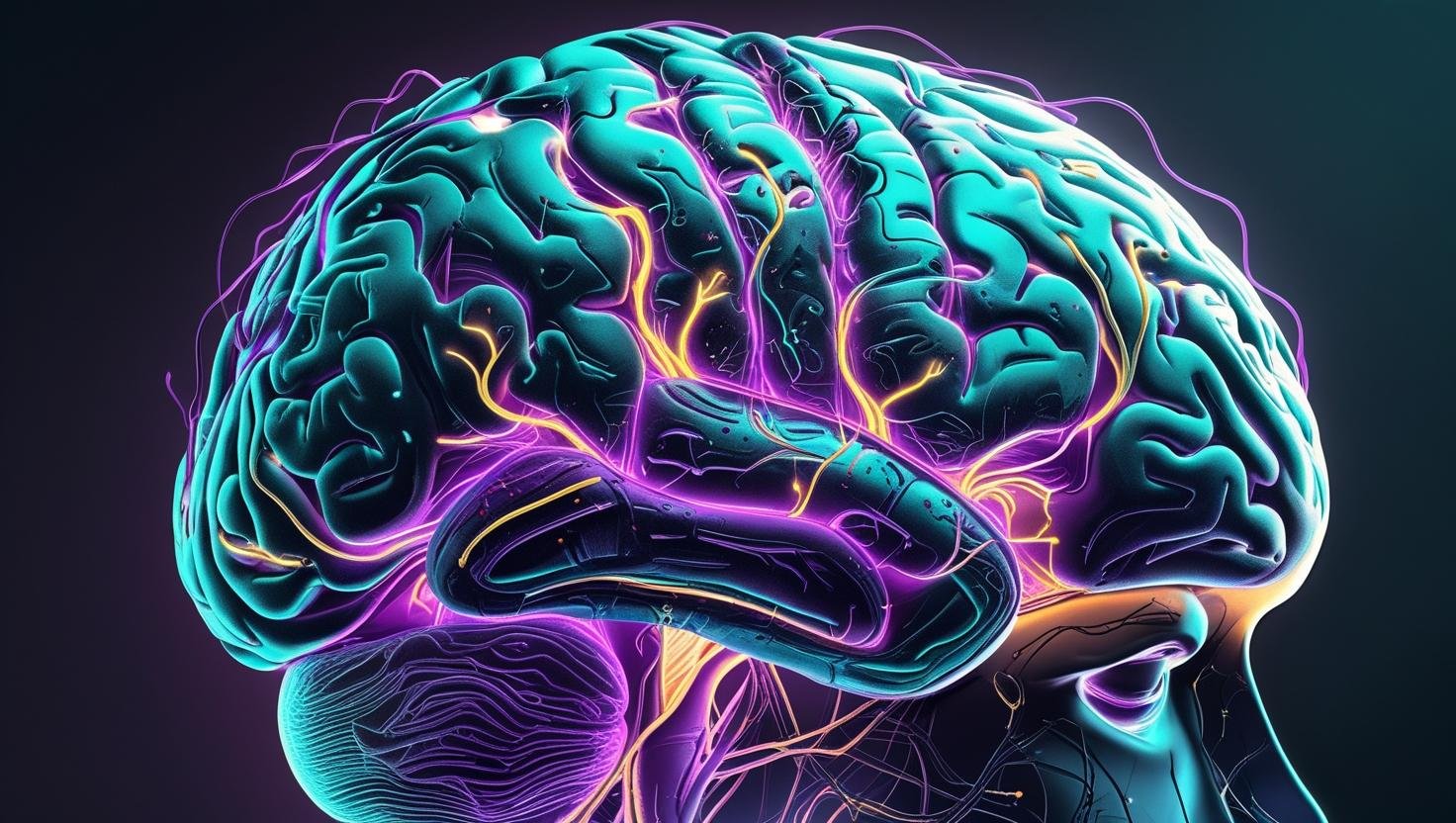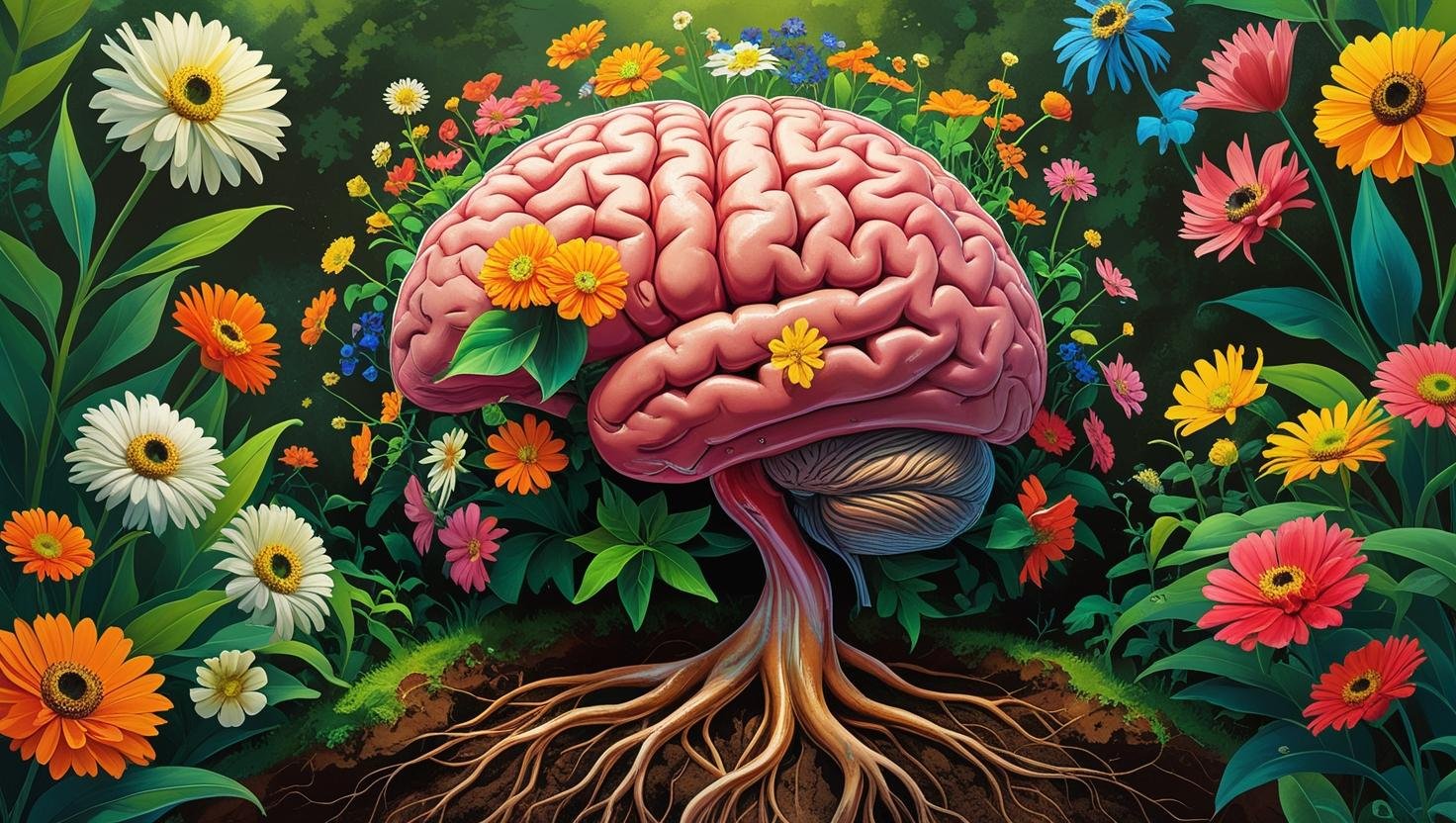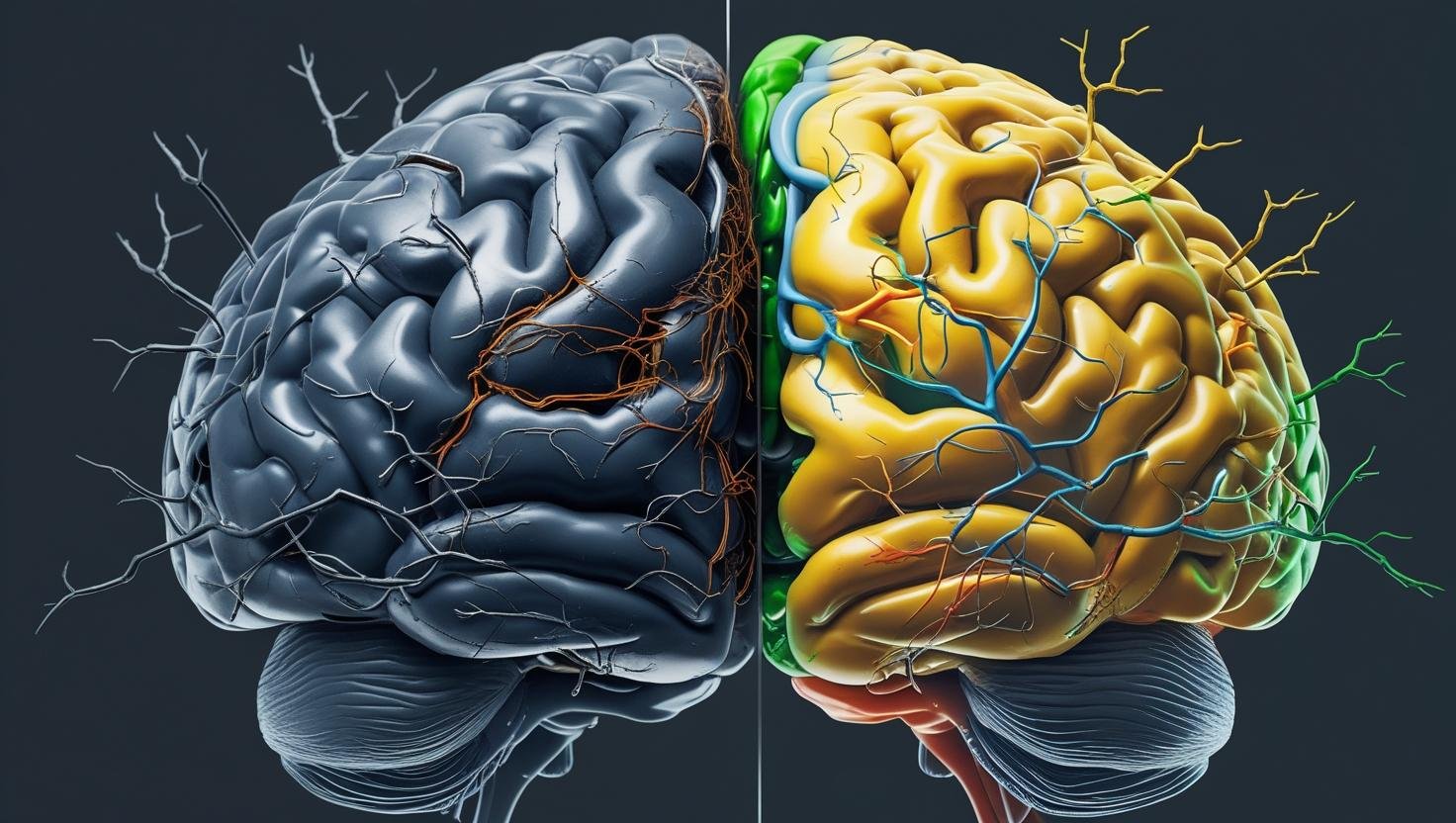Unlocking the Power of a Listening Mind: A Deep Dive into Your Brain Is Always Listening by Dr. Daniel G. Amen
Introduction
Have you ever wondered why you sometimes feel overwhelmed by negative thoughts or irrational fears? Do you struggle with self-sabotage or chronic anxiety despite trying every motivational hack? Dr. Daniel G. Amen’s groundbreaking book, Your Brain Is Always Listening, provides a powerful explanation: your brain is constantly tuned in, absorbing your thoughts, memories, emotions, and even your past traumas.
In this extensive blog post, we dissect the core ideas of the book, chapter by chapter, and translate its psychological insights into practical steps you can implement in your everyday life. Whether you’re battling depression or simply looking for more mental clarity and positivity, this post will empower you with the tools to take control of your brain—and your life. Because remember, your brain is always listening.
The concept that “your brain is always listening” underscores every page of Dr. Amen’s work. It’s a reminder that our inner dialogue, environmental exposure, and lifestyle choices are always shaping our neural pathways. The human brain is a living system, influenced not just by biology but by every sensory experience, word spoken, and emotion felt. If you’ve ever repeated negative self-talk or internalized shame from a past experience, you’re reinforcing that neural wiring. The book teaches that through awareness and intentional action, this cycle can be reversed.
Dr. Amen frames the brain as not just an organ, but a dynamic participant in our emotional and behavioral life. He urges readers to stop viewing mental health as isolated from physical well-being. This holistic philosophy is not only refreshing—it’s essential. You’ll discover through this review that healing the brain begins with listening to it, understanding it, and ultimately, respecting its needs and limits.
If you’ve ever felt like something inside is “off,” but couldn’t explain why, or if your emotions seem out of proportion to your circumstances, Your Brain Is Always Listening may be the missing piece. Dr. Amen doesn’t just give you theory—he offers tested, actionable advice backed by decades of clinical practice and cutting-edge neuroimaging research. You’ll learn about the dragons that haunt your subconscious, the automatic negative thoughts that plague your confidence, and the very real biological imbalances that intensify these issues.
This blog is structured to help you internalize the most impactful lessons from each chapter, with a clear emphasis on real-world applications. You’ll see how concepts like neuroplasticity, brain scans, nutritional psychiatry, and mindful practices come together to create a powerful roadmap to mental and emotional freedom. Above all, this is not just about managing symptoms—it’s about transforming your mind.
Let’s begin this transformative journey together. Your brain has something to say. Are you ready to listen?

Additional Reflections on Brain-Body Connection
One of the most profound aspects of Your Brain Is Always Listening is its consistent reinforcement of the brain-body relationship. Dr. Amen draws numerous links between inflammation, gut health, hormone imbalance, and emotional instability. He emphasizes that issues such as anxiety and depression are not “just in your head”—they are often physiological problems with psychological symptoms.
To truly heal your dragons and boost your mood, Dr. Amen recommends optimizing the body’s systems. This includes lab testing for deficiencies, managing stress through breathwork, and even integrating functional medicine practices. This biopsychosocial approach is one of the unique strengths of the book.
Dr. Amen highlights that the brain is a physical organ that requires proper nourishment, detoxification, and care. This idea may seem simple, yet it is often overlooked in traditional psychological models. He discusses how nutrient deficiencies in magnesium, zinc, omega-3 fatty acids, and B-vitamins can lead to cognitive and emotional dysfunction. More importantly, he provides actionable strategies such as increasing your intake of leafy greens, reducing processed foods, and using supplements responsibly.
The connection between the gut and the brain—commonly referred to as the gut-brain axis—is a recurring theme. The book explains how dysbiosis (an imbalance in gut bacteria) can trigger inflammation, mood disorders, and even foggy thinking. Dr. Amen suggests probiotics, fermented foods, and stress management as part of a holistic healing plan. These are not just alternative health trends; they are evidence-backed strategies to optimize your cognitive and emotional well-being.
Additionally, hormone regulation plays a significant role. Imbalances in thyroid function, cortisol, or sex hormones can exacerbate mental health issues. Dr. Amen advocates for comprehensive lab testing to uncover these hidden contributors. Once identified, natural remedies like adaptogenic herbs (ashwagandha, rhodiola) or lifestyle changes (like better sleep hygiene and light exposure) are recommended.
Your brain is always listening not just to your thoughts, but also to what you eat, how much you move, how well you sleep, and even how deeply you breathe. The book insists on looking beyond the surface. When your body is in distress, your brain responds in kind. Hence, addressing physical health is not just an adjunct to mental wellness—it is foundational.
Dr. Amen’s integrated view is not only scientifically sound but also deeply compassionate. He doesn’t ask patients to push through their mental illnesses with willpower alone. Instead, he empowers them with the knowledge that healing is multi-dimensional. If you’ve been treating your mental health like a puzzle with missing pieces, this book provides the missing links.
Remember, your brain is always listening—to your body’s whispers, your nutrition, your movement, and your self-care. Treat your body well, and your brain will thank you with clarity, calm, and emotional resilience.

The Power of Neuroplasticity: Rewiring Your Brain
Central to Your Brain Is Always Listening is the science of neuroplasticity—the brain’s ability to change and adapt throughout life. Dr. Amen stresses that because your brain is always listening, it is also always changing based on your experiences, thoughts, and behaviors. This means you can literally reshape your brain, healing from past wounds and building stronger, healthier pathways.
The brain is not a fixed organ. For decades, many believed the brain stopped developing after childhood. However, modern neuroscience proves that adult brains remain highly malleable. This discovery is revolutionary because it means mental illnesses and unhealthy thought patterns are not permanent. They can be rewired.
Dr. Amen offers concrete strategies to harness neuroplasticity. These include:
-
Mindfulness meditation to strengthen areas of the brain responsible for attention and emotional regulation.
-
Cognitive Behavioral Therapy (CBT) exercises to challenge and replace automatic negative thoughts.
-
Gratitude journaling which enhances neural circuits related to positivity and reward.
-
Learning new skills or hobbies that stimulate neural growth and synaptic connections.
-
Physical exercise that promotes brain-derived neurotrophic factor (BDNF), supporting brain cell growth.
Because your brain is always listening, the thoughts you choose to focus on have the power to reinforce healthy neural pathways or feed old, destructive ones. Dr. Amen warns against passive mental habits like rumination, worry, or self-criticism, which solidify negative wiring. Instead, intentional mental practices can create new, healthier habits and emotional resilience.
This concept transforms how we think about therapy and self-help. It empowers readers with a proactive mindset: you are not trapped by your biology or your history. You can actively sculpt your brain toward happiness and well-being because your brain is always listening and responding.
Healing from Trauma and Toxic Thoughts
One of the most challenging topics Dr. Amen explores is how trauma and toxic thinking shape the brain’s wiring. Because your brain is always listening, unresolved trauma and repeated negative self-talk can embed harmful neural circuits that impair mental health.
Trauma, especially in early childhood, alters the brain’s structure and chemistry. It can lead to hypervigilance, emotional reactivity, and difficulties with trust and connection. Dr. Amen uses brain imaging to show how trauma affects regions like the amygdala (the brain’s alarm center) and the prefrontal cortex (which controls reasoning and impulse).
The good news is that trauma’s effects are not set in stone. Through therapies such as Eye Movement Desensitization and Reprocessing (EMDR), somatic experiencing, and mindfulness, patients can begin to “rewire” these trauma circuits. The brain’s plasticity allows for healing when trauma is addressed compassionately and deliberately.
Toxic thoughts—such as chronic self-criticism, catastrophic thinking, or “should” statements—also create destructive feedback loops. Because your brain is always listening, these thoughts reinforce stress, anxiety, and depression. Dr. Amen provides tools to interrupt these toxic cycles, including:
-
Identifying triggers and patterns.
-
Replacing toxic thoughts with compassionate, realistic affirmations.
-
Practicing self-compassion and forgiveness.
-
Engaging in positive social connections.
This healing process requires patience but offers hope. By becoming aware that your brain is always listening, you learn to nurture it with kindness and constructive input rather than harmful criticism. This shift is foundational for recovery and long-term mental health.

Lifestyle Habits for Brain Health
The practical advice in Your Brain Is Always Listening extends into daily lifestyle habits that support brain wellness. Dr. Amen stresses that because your brain is always listening, everything from your sleep hygiene to social relationships affects your mental state.
Key lifestyle tips include:
-
Prioritize quality sleep: Sleep is essential for memory consolidation and toxin clearance in the brain.
-
Regular physical activity: Exercise improves mood, cognition, and neurogenesis.
-
Healthy diet: Foods rich in antioxidants, omega-3s, and fiber nourish the brain.
-
Stress management: Techniques such as yoga, deep breathing, and mindfulness lower cortisol and protect brain cells.
-
Limit substance use: Alcohol and drugs damage brain function and should be minimized.
-
Social engagement: Positive relationships support emotional well-being and cognitive resilience.
Because your brain is always listening, these habits communicate respect and care to your brain’s complex systems. Neglecting them, on the other hand, signals distress and can trigger emotional and cognitive decline.
Dr. Amen further explores the power of nature exposure in brain health. Spending time in green spaces lowers cortisol levels and increases parasympathetic nervous system activity, which promotes calmness and restoration. Because your brain is always listening, the natural environment acts as a powerful therapist, often underestimated in its ability to reduce anxiety and depression.
The book also dives into the significance of digital hygiene. Overexposure to screens, especially before bed, disrupts circadian rhythms and brain chemistry, reducing melatonin production and impairing sleep quality. Dr. Amen advises setting limits on screen time and incorporating “tech-free” zones in the home.
Sleep hygiene receives an in-depth treatment as well. Beyond just getting enough hours, Dr. Amen highlights the importance of consistent sleep schedules, limiting blue light, and creating a restful environment free of noise and distractions. Good sleep is foundational because during deep sleep the brain clears toxic metabolic byproducts, reinforcing why your brain is always listening to your nightly rituals.
Another emerging theme is the impact of gut health on mental function. Dr. Amen introduces the concept of psychobiotics—probiotics specifically targeting mental health—and encourages readers to consult with healthcare providers about this innovative treatment avenue.
Lastly, Dr. Amen stresses the power of gratitude and positive social engagement. Acts of kindness, meaningful conversations, and gratitude journaling stimulate brain reward centers and boost dopamine and serotonin levels, enhancing mood and motivation. These simple habits remind us daily that your brain is always listening to the emotional tone of your life.
In sum, these lifestyle changes represent a comprehensive toolkit that empowers readers to nurture their brain health proactively.

FAQs about Your Brain Is Always Listening
Q1: What does the phrase “your brain is always listening” mean?
It means your brain continuously processes and responds to your thoughts, emotions, environment, and behaviors, shaping your mental and emotional health over time.
Q2: Can I really change my brain with practice?
Yes! Thanks to neuroplasticity, your brain can rewire itself in response to new habits, thoughts, and experiences.
Q3: How does trauma affect the brain?
Trauma alters brain regions related to fear, emotion regulation, and memory but with therapy and time, healing and rewiring are possible.
Q4: What are some quick ways to improve brain health daily?
Prioritize sleep, eat nutrient-rich foods, exercise, practice mindfulness, and maintain healthy relationships.
Q5: Is medication necessary to fix brain problems?
Not always. While medication can be helpful, many brain health improvements come from lifestyle, therapy, and nutritional support.

Conclusion: Embrace the Truth That Your Brain Is Always Listening
Dr. Daniel G. Amen’s Your Brain Is Always Listening offers a transformative perspective on mental health — one that empowers us to realize that your brain is always listening to the messages you send through your thoughts, emotions, diet, and habits. This continuous internal dialogue shapes the architecture of your mind, for better or worse.
By understanding that your brain is always listening, you gain a powerful tool: the ability to choose what you feed your brain mentally, emotionally, and physically. Whether it’s combating negative self-talk, healing past trauma, adopting brain-healthy nutrition, or practicing mindfulness and gratitude, every choice rewires your brain toward resilience and joy.
The book’s compelling message is that you are not a passive victim of your brain’s wiring — instead, you are an active participant in its ongoing development. Because your brain is always listening, your awareness and intentional actions become the key to unlocking mental clarity, emotional balance, and lasting peace.
Incorporating the practical habits and deep insights from this book can set you on a path of healing and growth. Remember, the moment you begin speaking kindly and listening carefully to your brain, you start reshaping your inner world for the better.
So, if you’ve ever doubted the power you hold over your mental health, Your Brain Is Always Listening reminds you that healing is always possible — because your brain is always listening, and it wants to help you thrive.
To close, it’s worth reflecting on the book’s underlying message: healing and mental wellness are not reserved for a lucky few or those with extraordinary resources. Rather, they are accessible to anyone willing to respect the brain’s needs and harness its remarkable capacity for change.
Dr. Amen’s compassionate approach reminds us that no matter how complex our challenges may be, every small positive action counts because your brain is always listening. This means even small shifts in mindset, nutrition, sleep, or relationships can ripple through your brain’s networks, creating a foundation for lasting well-being.
The book also invites us to be mindful of what we expose our brains to—whether it’s the media we consume, the conversations we engage in, or the internal narratives we entertain. Protecting your mental environment is as crucial as caring for your physical one.
Ultimately, Your Brain Is Always Listening is a call to awaken to the incredible power within you—the power to listen, to change, and to thrive. It’s a reminder that healing is a journey, not a destination, and that by choosing to listen wisely, you can create a brain and life full of resilience, joy, and possibility.
Because truly, your brain is always listening—and it’s ready to respond when you treat it with the care it deserves.
For more deep insights and book reviews, visit: shubhanshuinsights.com
2 Transform Your Life Positively with Change Your Brain Every Day by Dr. Daniel G. Amen1 Don’t Sweat the Small Stuff Book Review – Uplifting Lessons from Richard Carlson on Living a Stress-Free Life1 Why We Sleep Book Review – A Fascinating Deep Dive into the Science of Slumber by Matthew Walker1 Outlive by Dr. Peter Attia: A Comprehensive Chapter-Wise Review for Lifelong Health Optimization” 1 Think and Grow Rich by Napoleon Hill – A Definitive Blueprint for Success”